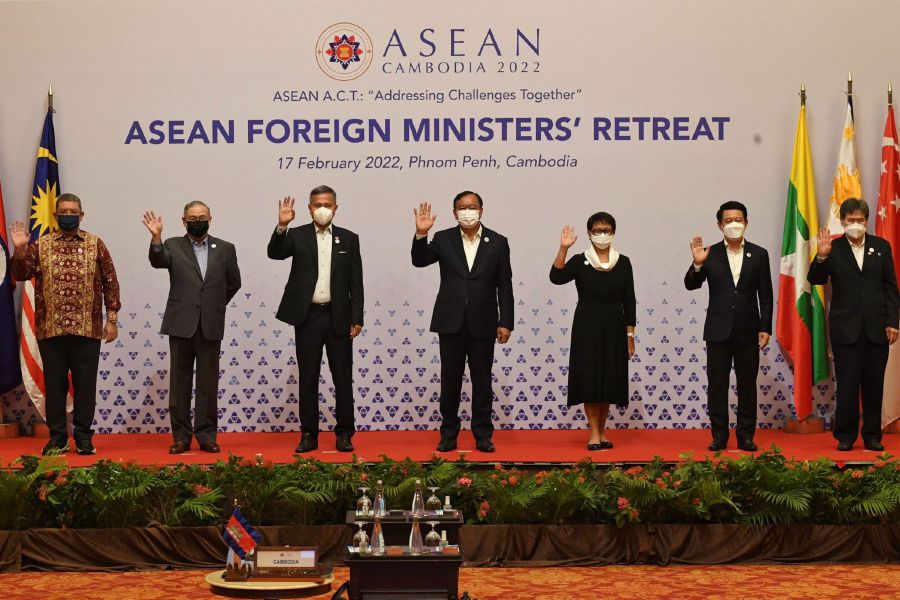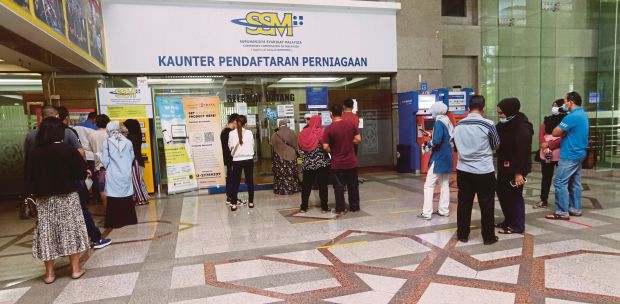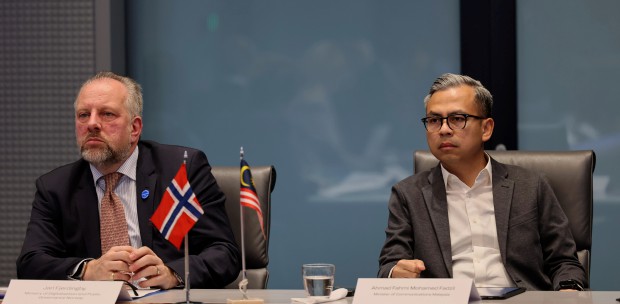IN the recent Asean Foreign Ministers' Retreat (AMM Retreat) on Feb 17 and 18, the heads of diplomacy of the bloc had the opportunity to review the process of advancement of regional cooperation.
An interesting development not much highlighted by the media is the fact that Malaysia, together with Cambodia, the current chair of the rotating Asean presidency, will lead a new working group in charge of charting the path forward for this community of nations.
Officially called the High-Level Task Force (HLTF) for the Asean Community's Post-2025, this new initiative originally stemmed from Vietnam's chairmanship back in 2020.
At that time, the Hanoi Declaration on the Asean Community's Post-2025 Vision had been issued, creating a process to discuss the future of the region.
The member states had two options before them. One of them was to continue with a "business as usual" approach based on cooperation and driven by the concept of unanimity.
Under the new initiative, the alternative is to move ahead with faster speed, shifting towards real integration, a concept different from simple "cooperation" — a shift that would inevitably entail a progressive phase out of unanimity, an approach that has become synonymous with stalemate.
The question of "cooperation vs integration" is paramount if we want a stronger and prosperous Southeast Asia, and it is of such vital and strategic importance that a discussion about it must be initiated.
After all, deciding on the future of the region should not just entirely be a responsibility of the governments, but also something about which the people in Southeast Asia express their own opinions.
The media obviously would have a huge role to play as well because they can enable a discussion, a real one among the citizens that so far has been too apathetic about an issue of such relevance.
Talking about relevance is important while framing the future of Asean, a regional bloc based on three pillars or communities, each focused on key policy areas.
In reality, these so-called communities are just "fictions", too far and too remote for the common people to grasp their strategic importance and feel part of them.
A shift towards more integration would be almost revolutionary if you think about it even though it would entirely be in the spirit of the existing Asean Charter.
Practically, it would symbolise the fact that sovereign nation-states come together and renounce to bits their sovereignty.
As we can see from the European Union (EU), such process is neither easy nor straightforward, and it will be even more challenging for the members of Asean.
The Europeans came up with a blueprint that is still very much a work in progress , but so far, they put in place a hybrid model where member states of the EU still have most of the decision-making powers.
At the same time, other "semi" federal or better con-federal institutions (the Parliament and Commission) have assumed enormous competencies.
If there is a will, the leaders of Asean can find their own model and blueprint for a post-2025 institution, but we need a political will and a common understanding that unless bold changes are envisioned, the region as a political entity will lose more and more relevance.
Southeast Asia will still be a key geopolitical and economic theatre, but the focus will be on individual, standing-alone sovereign nations.
Key choices must be made: it is not just about deciding on which "gear" these states will work together, but it will also be about redefining the meaning of the Asean Charter that so far has been interpreted in an extremely conservative fashion.
It will ultimately boil down to which values are at the foundations of the region: pluralism, respect of human rights and freedoms or a concept of state that upholds effectiveness and stability, but neglects people's aspirations.
Will Asean remain a recognised player or, despite the numerous declarations issued meeting after meeting, the bloc will lose its importance and strategic appeal?
Malaysia, as co-chair of the task force, will have a lot of influence and leverage to push for a different Asean. We need to imagine a bolder way the region can evolve and prosper.
The challenges ahead are so huge that only real integration could pave the way to the common solutions that Asean so badly needs. The citizens cannot be taken for granted, and must be involved. Such debate is so important for the people to be excluded or ignored.
Malaysia could promote a regional dialogue, collecting voices and opinions about how to design a better, fairer and stronger Asean. The future of the region's next generations is truly at stake.
The author writes on civic engagement, youth development, the SDGs and regional integration in the context of Asia-Pacific






